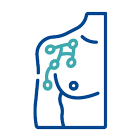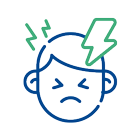What are the symptoms of lung cancer?
Learn more about the details of the various symptoms of lung cancer below.
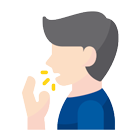
Cough
- A new cough that started 3 weeks ago or that you’ve had for longer
- A cough that you’ve had for a long time that is getting worse
- Coughing up blood, even if it’s only a very small amount in your phlegm (sputum)
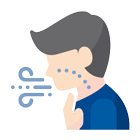
Breathing problems
- Shortness of breath or breathlessness for no reason (for example, you haven’t been active or you used to do the activity without getting out of breath)
- Wheezing
- A hoarse voice for 3 weeks or more
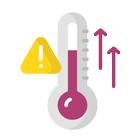
Fever
- An intermittent fever for many weeks
- A chest infection that isn’t clearing up or that keeps coming back

Appetite or weight loss
- Loss of appetite
- Unexplained weight loss
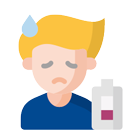
Fatigue and weakness
- Always feeling tired, regardless of how well you’ve slept (fatigue), and/or exhausted
- Weakness

Shoulder, chest, or rib pain
- An ache or pain when breathing or coughing
- Ache or pain in the chest, shoulder (especially if it travels down the arm) or ribs that doesn’t get better, or swelling in the joints
- Pain when swallowing or difficulty swallowing
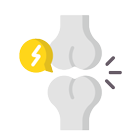
Bone pain
- Pain in your joints

Finger changes
- Your fingers are becoming more curved
- The ends of your fingers and fingernails have become larger (this is known as ‘finger clubbing’)
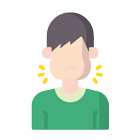
Neck or face swelling
- Swelling in any part of your face or neck

Blood clots
- Recurring blood clots
Symptoms of lung cancer that has spread
If lung cancer spreads (metastasises) to another area of the body it can cause other symptoms.
Syndromes that can be caused by lung cancer
A ‘syndrome’ is the name given to a group of symptoms that occur together. Some lung cancers can cause syndromes.
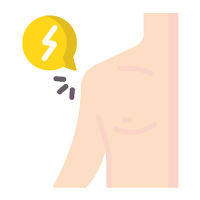
Horner syndrome
Horner syndrome can be caused by a rare type of lung cancer called Pancoast tumours, which can cause severe shoulder pain. These symptoms of Horner syndrome affect the same side of the face: drooping or weakness of the upper eyelid, little or no sweating, and a smaller pupil (the dark centre of the eye).

Superior vena cava (SVC) syndrome
Superior vena cava (SVC) syndrome is caused when a tumour at the top of the right lung and in lymph nodes in the chest presses on the SVC (this is a major vein in the body). SVC syndrome can cause a bluish-red skin colour and swelling in the upper chest, face, neck and arms. It can also cause dizziness and headaches if the flow of blood to the brain is affected. It can become serious and needs to be treated promptly.
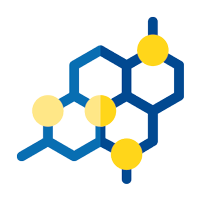
Hormone-related (paraneoplastic) syndromes
Hormone-related (paraneoplastic) syndromes can develop when lung cancers (usually small cell lung cancers (SCLCs) make substances like hormones. These travel around the body in the bloodstream and can cause problems in other areas of the body that don’t seem to be related to lung cancer. These can include symptoms as varied as confusion, feeling restless or irritable, nausea and vomiting, weight gain, easy bruising, loss of balance, muscle weakness, changes in behaviour, difficulty walking, constipation and vision problems.


